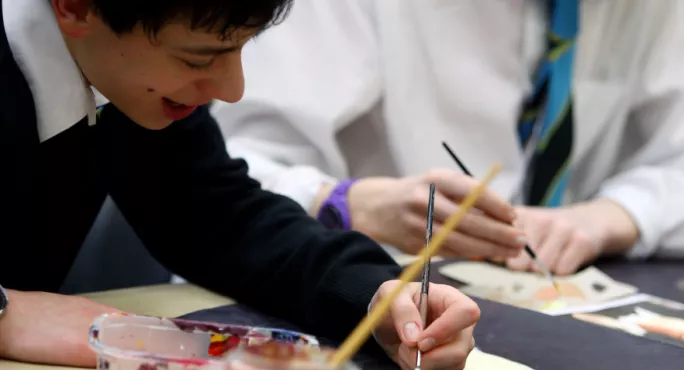Opinion: ‘Our findings on key stage 3 provision are worrying,’ says Ofsted

What are your most vivid memories of secondary school? For some, it may be an inspirational teacher, a success on the netball court or the tension before a big theatrical production.
But for many, I think it’s fair to say that exams loom large. The cramming in the days and weeks before, or the stress of opening the envelope which contains exam results that may be the ticket to the job, college or university you want.
So it is perhaps not surprising that many secondary school leaders focus on key stage 4, with its accountability around examination outcomes, at the expense of KS3.
The issue of how well pupils do when they begin secondary school has been a cause of concern for Ofsted for some time. We identified it as a problem in the last annual report. So, for our survey Key Stage 3: The Wasted Years?, we asked how well school leaders use key stage 3 to develop pupils’ learning and build on their achievements in primary school.
The answer, we found, is too often not well enough.
For this survey, HM inspectors reviewed the outcomes of more than 1,600 full inspections and 300-plus monitoring inspections; they also focused on modern foreign languages (MFL), history and geography teaching at key stage 3. Inspectors visited 14 schools and interviewed 100 secondary school leaders. Finally, they analysed nearly 11,000 responses to questionnaires from Year 7 to Year 9 pupils.
From this extensive evidence base we found that the KS3 curriculum offer in schools is generally broad and balanced. However, I’m afraid to say that our other findings are worrying.
The truth is that too many pupils do not maintain their momentum from primary school. Secondary schools rightly often focus on the pupils’ pastoral needs, but this is often at too great a cost to the emphasis on their academic needs.
Our survey has found that one in five inspection reports identified KS3 as an area for improvement. Put simply, it is not a high priority for secondary school leaders who plan and resource KS4 and KS5 first. And that has implications for timetabling, assessment, teacher allocation and the monitoring of pupils’ progress.
Too often teaching in MFL, history and geography did not lead to good levels of achievement in KS3. This left pupils unprepared and under-confident, especially in MFL, to take on the rigours of these important subjects at KS4.
Moreover, homework at this stage is often of variable quality and does not consolidate learning or prepare pupils for new areas of study. Of the Year 8 pupils we asked, approximately half said homework never, or only some of the time, helped them to make progress.
This may seem somewhat overwhelming. However, although our key findings are blunt, our survey highlights secondary schools which do successfully prioritise KS3. Alongside our survey report, we have published a set of good practice case studies to highlight this success.
One outstanding secondary school in West Yorkshire, the Batley Girls High School, celebrates the end of KS3 with a graduation ceremony. To be able to graduate, pupils must reach their potential in English, mathematics, science and at least two other subjects. In setting up the ceremony, the school leaders mark and recognise the importance of KS3 and pupils strive to achieve graduation success.
Less dramatically but no less successfully, we can look to Ansford Academy in Somerset. This school has worked with its partner primaries to set up a shared system for making judgements about pupils’ performance at KS2 and KS3. It is through this system that Ansford Academy has a thorough understanding of where its new pupils stand on their first day in secondary school.
Of course, these ideas may not work for all schools. But they certainly provide food for thought.
So we really need to see secondary school leaders giving KS3 the attention it deserves. They must make sure that teaching is of a high quality from the word go, and that it prepares pupils for the formidable challenges of KS4. The transition from primary school must be better managed, the attainment gap for disadvantaged pupils tackled and homework and careers guidance improved. This is a significant to-do list for secondary school leaders, I know.
For our part, inspectors will focus more sharply on KS3, at the same time as recognising through our judgements the efforts that school leaders are making to build for the future rather than going for “sticking plaster” solutions to boost short-term grades at the expense of real learning.
We will have more to say about secondary school leadership and other themes when we publish the Ofsted annual report in December.
Sean Harford is Ofsted’s national director for education
Keep reading for just £1 per month
You've reached your limit of free articles this month. Subscribe for £1 per month for three months and get:
- Unlimited access to all Tes magazine content
- Exclusive subscriber-only stories
- Award-winning email newsletters